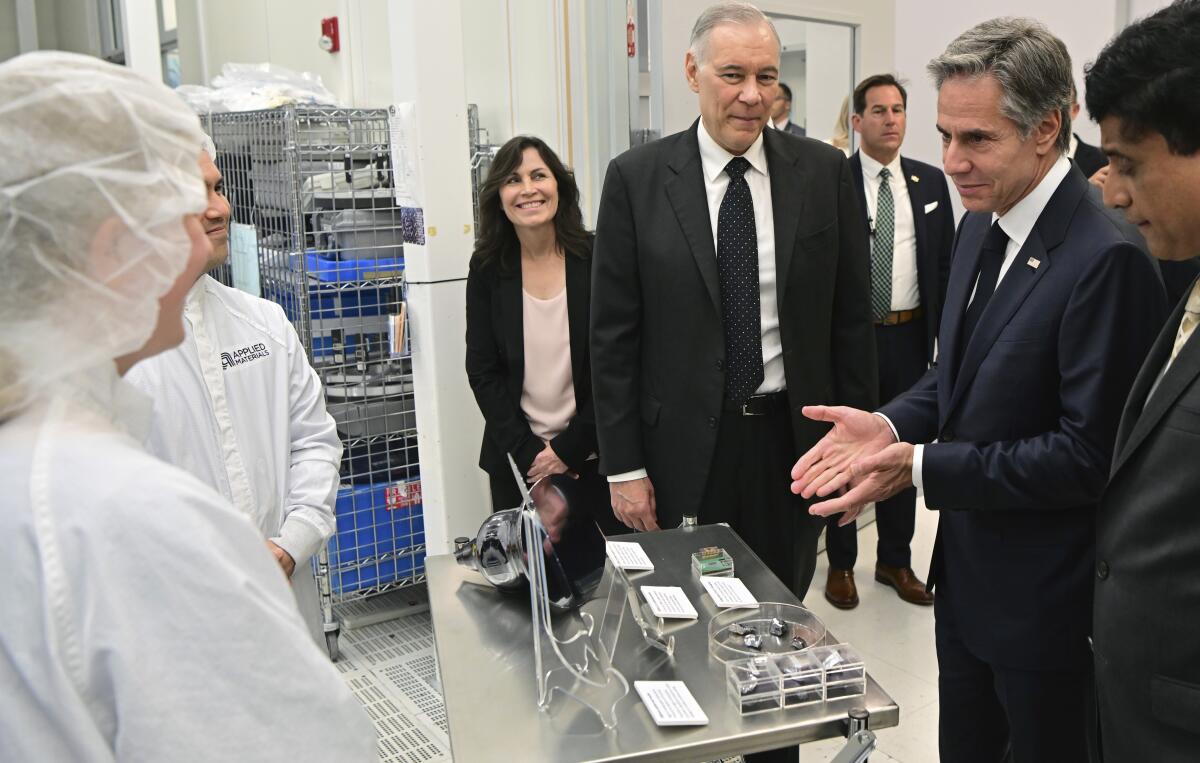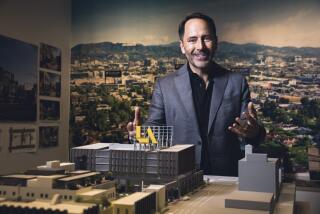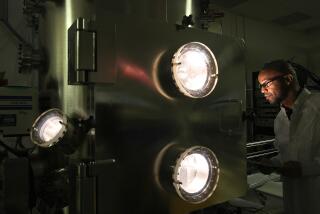Silicon Valley company plans to build $4-billion computer chip research center

- Share via
Applied Materials is planning to spend as much as $4 billion on a new research and development center near its California headquarters, embarking on a now-rare building project in the heart of Silicon Valley.
The EPIC Center, on Applied Materials’ campus in Santa Clara, will be the biggest R&D facility in the semiconductor industry, the company said Monday. Applied Materials is the largest maker of chip manufacturing equipment, and the project will help the company and its customers rapidly develop new production techniques.
Like many of the industry’s construction projects these days, the effort is also a bid to tap government funding. The U.S. CHIPS and Science Act, passed last year, will allocate roughly $52 billion to help revitalize domestic R&D and manufacturing, and companies are angling to benefit from the windfall. Applied Materials’ ambitions with the new center will hinge on how much assistance it gets, Chief Executive Gary Dickerson said in an interview.
“The scale and pace of what we do is dependent on incentives,” he said. The company chose to build in Silicon Valley — a place that’s become too costly and burdensome for most new chip facilities — because of the proximity to many companies with an interest in semiconductors, he said. Intel, Nvidia and Advanced Micro Devices are all based in the same city, about an hour’s drive south of San Francisco.
Democrats hail Senate passage of a bill to stimulate production of semiconductors as a historic investment in scientific research.
The announcement coincides with a meeting of research and design executives from Applied Materials’ customers — an event that will be attended by Vice President Kamala Harris.
The new facility is designed to speed up improvements in the way that semiconductors are made, helping the chip business grow into a trillion-dollar market this decade. The EPIC Center, whose name is short for equipment and process innovation and commercialization, will let chip manufacturers try out new machinery in something close to a complete production line.
That should make it faster and easier to fine-tune new production technologies. At the same time, academic institutions will have access to cutting-edge gear for research, Dickerson said. The overall aim is to cut down on the 10 to 15 years it takes academic research to make it to the factory floor. The center will also help attract and train the workers that the industry will need to run plants and design chips, he said.
Companies using the center will be able to keep their work secret by using different areas of the facility. And Applied Materials will include machinery from its rivals so that customers can do experiments in a holistic way.
Dickerson said the project is needed to help overcome daunting new technical challenges and maintain the pace of chip advancement — what he calls one of humankind’s greatest engineering achievements. A state-of-the-art chip crams 60 miles of wiring connecting 15 billion transistors into an area that’s 10 millimeters across. Some of the layers of materials deposited to create that structure are just four atoms deep.
Commerce Secretary Gina Raimondo unveiled tight new proposed restrictions on semiconductor manufacturers doing business in China.
Building the new facility will lead to an increase in Applied Materials’ capital spending over the next few years, but the company has said that its investments won’t affect its ability to fund dividends and share repurchases.
More to Read
Inside the business of entertainment
The Wide Shot brings you news, analysis and insights on everything from streaming wars to production — and what it all means for the future.
You may occasionally receive promotional content from the Los Angeles Times.












